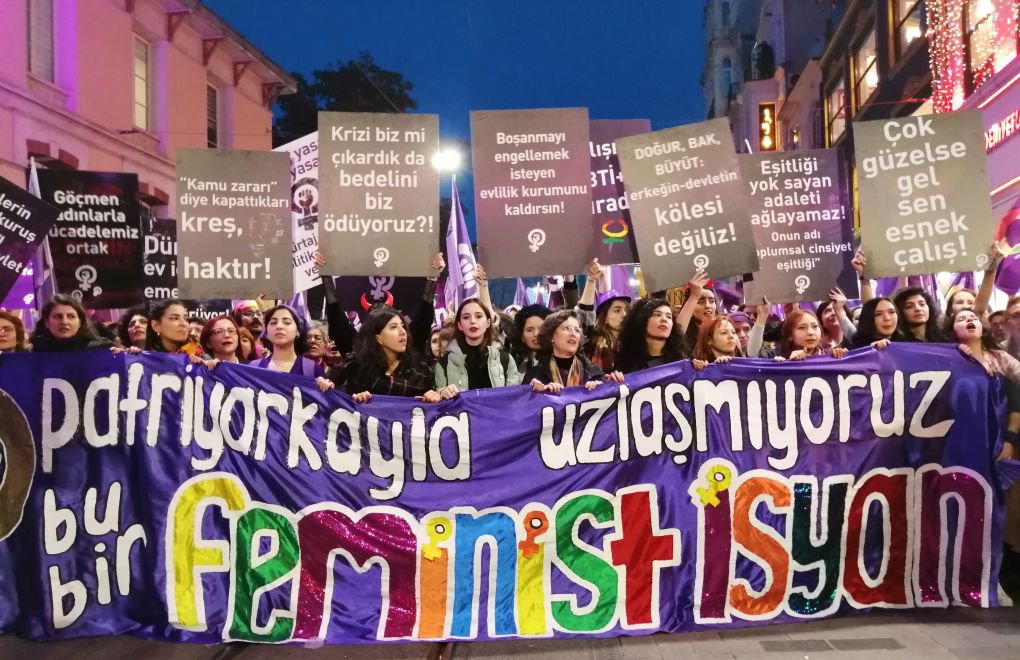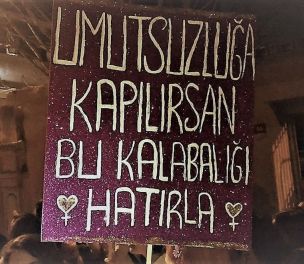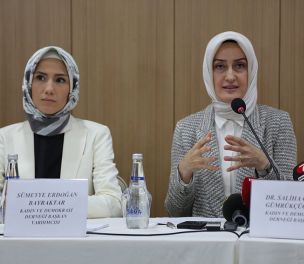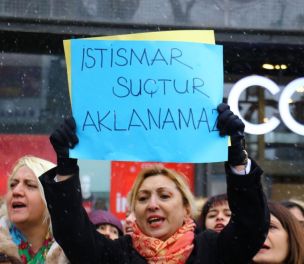* Photo: Evrim Kepenek / bianet
Click to read the article in Turkish
With the outbreak of the novel coronavirus (COVID-19) pandemic, we are going through an extraordinary period. The figures shared in this process show that male violence has been on the increase. The Law no. 6284 on the Protection of Family and Prevention of Violence Against Women and the İstanbul Convention need to be enforced as soon as possible.
Speaking to bianet about the issue, lawyer Tuba Torun underlines that an action needs to be taken against male violence with complementary policies, going beyond what is written in the legislature.
According to the last bianet Male Violence Monitoring Report, men killed at least 17 women and the deaths of at least 19 women were reported in the press as suspicious in April 2020.
As it is constantly emphasized, what needs to be done in the face of this is to fully and effectively enforce the Law no. 6284 and İstanbul Convention.
'No sentence reduction for perpetrators'
Lawyer Tuba Torun has spoken to bianet about the recent threats targeting the İstanbul Convention and the increasing male violence following the law on criminal enforcement, which has paved the way for the release of almost 90 thousand convicts amid COVID-19 pandemic.
about the recent threats targeting the İstanbul Convention and the increasing male violence following the law on criminal enforcement, which has paved the way for the release of almost 90 thousand convicts amid COVID-19 pandemic.
Referring to the İstanbul Convention, Torun says that with its four main chapters, namely Prevention, Protection, Investigation/Prosecution and Comprehensive Policies, the Convention puts forward what needs to be done quite clearly and one by one:
"For instance, gender education needs to be a part of compulsory curricula as of primary school. Data on male violence need to be collected and kept in detail and announced to the public so that they can be analyzed properly and violence can be prevented. The sentences given to the perpetrators of violence should not be reduced.
"The victim and the perpetrator of violence should not be made to sit at the same table in the name of conciliation. The capacity of shelters needs to be increased and their conditions need to be improved. Maximum protection needs to be provided to those facing a threat of violence.
"When these are done, then, it means that the İstanbul Convention has started to be implemented. In order to prevent male violence, something beyond what is written needs to be done."
'Law no. 6284 is a lifesaver for women'
Torun says that the Law no. 6284 on the Protection of Family and Prevention of Violence Against Women is, in a sense, a brief and practical law filtered through the provisions of İstanbul Convention.
She underlines that a person subjected to violence or facing such a threat can request a protection order from the local authorities (governor's office, sub-governor's office), law enforcement (police, gendarmerie) and judicial authorities (family court, prosecutor's office) as per the Law no. 6284.
The order is issued within 24 hours without any evidence or documents requested. However, the orders issued by local and judicial authorities might be different in content. In that sense, it needs to be noted that the orders issued by judicial authorities could be more comprehensive.
'Amended law is against İstanbul Convention'
Referring to the recently enacted law on criminal enforcement, which has paved the way for the release of around 90 thousand convicts, lawyer Torun says that the law has disappointed not only women's rights defenders, but also all human rights defenders as a whole:
"They call it amended law on criminal enforcement, we call it a 'partial pardon.' Because it is defined as a pardon in the law. In order for a law draft on pardon to pass the Parliament, it needs to be approved by a three-fifth majority. The ruling party prefered to call it a 'law amendment' so that it would not have to bother with finding a majority.
"The opposition will take this amended law to the Constitutional Court in terms of both form and merit considerations. However, in practice, it is open to debate what good it would do after the offenders were released."
About İstanbul Convention
* Source: CoE The Council of Europe (CoE) "Convention on Preventing and Combating Violence Against Women and Domestic Violence", also known as "İstanbul Convention", is based on the understanding that violence against women is a form of gender-based violence that is committed against women because they are women. It is the obligation of the state to fully address it in all its forms and to take measures to prevent violence against women, protect its victims and prosecute the perpetrators. As of March 2019, it has been signed by 45 countries and the European Union (EU). On March 12, 2012, Turkey became the first country to ratify the Convention, followed by 33 other countries from 2013 to 2019 (Albania, Andorra, Austria, Belgium, Bosnia and Herzegovina, Croatia, Cyprus, Denmark, Finland, Estonia, France, Georgia, Germany, Greece, Iceland, Ireland, Italy, Luxembourg, Malta, Monaco, Montenegro, the Netherlands, Norway, North Macedonia, Poland, Romania, Portugal, San Marino, Serbia, Slovenia, Spain, Sweden, Switzerland). The Convention came into force on 1 August 2014. * Click here to read the full convention |
(SA/EMK/SD)








_-_Kopya-132.jpg)

-132.jpg)





